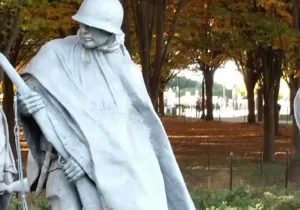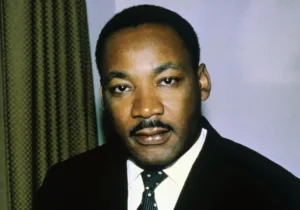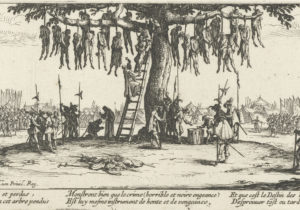We live in a time where it is easy—or at least popular with folks who have a lot of cultural sway—to bash nations, particularly with regard to nationalism. After all, nationalism causes wars, fuels abusive and intolerant discrimination, and suffocates chances for reforms, particularly in the realm of social justice. At least that’s what I’ve been hearing in certain circles across social media. For some who are more ideological, a straight, uninterrupted line is drawn from loyalty and favorable predisposition to one’s nation and her interests to all sorts of detestable enormities, fascism likely being the worst. Thus, the idea and utility of the nation-state is met not only with indifference, but hostility.
Typically, this controversy generates much heat but little light. Nevertheless, I hope against hope that a profitable conversation is possible, and that some may even find themselves more favorably disposed toward the nation-state (at least more that many activists and commentators seem to be). The difficulty in doing so is akin to describing “wet” to a fish. So much of our lives that we take for granted owe something to the nation-state that it is quite difficult—nearly impossible—for us to imagine a world without them in some form or another. For those on the “outs” with nations, I have five issues for them to consider.
Origins:
The first hurdle for those who would like to do away with the nation-state is to address what has been called “Chesterton’s fence.” Basically, why are nations here in the first place? When did nation-states come onto the scene? What resources made them possible, and what conditions made them desirable or even inevitable? What is a nation, anyway? Do you define them by shared land? Biological forefathers (“blood and soil”)? Shared language and mores? Shared interests (economic or otherwise)? Shared rulers? Shared cultural history, political heritage, and regional tradition? A shared common good (which lies behind the terms “commonweal” or “commonwealth”)? A body held together by oaths sworn—covenants and constitutions and vows of neighborliness? If we can’t answer these questions, how fruitful are our criticisms and proposed solutions?
Necessity:
Similarly, what else will fulfill the magisterial role of the nation-state? There are duties to fulfill that only the magistrate can do, and they are not always going to be glamorous or perfectly executed in this broken world. Just recently, I was studying through 2 Samuel 21:1-14. The parallels with the play Antigone were hard to miss. Questions of honor, loyalty, and justice all had to be reconciled. I would argue that this could not have been fulfilled by the family or the church, and that King David’s deeds, though unpleasant, were correct, despite the “no-win” situation the Israelites found themselves in. The whole story reveals the prickly complexity of righteous, prudent, and honorable rule—more than simply naked aggrandizements of power. Yes, these were different times, and in the special covenant nation of Israel. But similar conundrums will not go away. The trite aphorisms of social media mavens will not erase them. Can the individual, church, family, or hastily-assembled mob do everything there is that needs doing in human life, particularly as it is experienced in the plural?
Alternatives:
If nation-states are so bad, what would replace them? Would every individual person take justice into his own hands for any wrongs done to him? What would that entail for the weak? How does a society or community deal with criminals, as will be the case in a sinful, fallen world? Who will take on that responsibility? Some sort of entity will be necessary to do so.
If one is obsessed with removing any and all borders and national distinctions (including in laws and authorities), does that mean they want a one-world government? How is that better? Globalism is even more gigantic and homogenizing than nationalism is. How much freedom and loyalty would there be when politics would be a matter of the single person and a global government? Could all local needs, habits, and customs be accommodated by such a massive institution? While those who typically denounce nationalism also dislike the traditions of their fathers, they do have a soft spot for the traditions of others. Would globalism defend those traditions? Maybe global governments are simply too big. It behooves us to ask how big is too big, and how much power is too much to grant to a single, earthly entity.
Now, some may fire back about localism—about smaller political units, with magistrates that respect local customs and needs, all while seeking the good of the society, punishing the wicked and rewarding the just. City-states even come to mind. I would argue that, at that point, we are not arguing about the existence or reality of nations, but rather their size. Maybe we should think smaller. Balancing the large and the small, of course, brings us to questions of federalism—subsidiarity and solidarity. But that doesn’t cut out the nation entirely. It merely offers checks and balances. Such debates—size, intermediary levels of governance, and so forth—are what helped forge the United States Constitution, after all. Similarly, it behooves us to ask how small is too small. While globalism looms large on our political horizon, for much of human history, men suffered under the near-anarchy of tribalism. The sovereign nation has served as a way to avoid such deprivations.
Counter-arguments:
It is prudent to hear arguments from the other side of whatever controversy you find yourself in. My mind has certainly changed to some degree or another on these issues. Daniel J. Elazar, Eric Nelson, and Yoram Hazony have all challenged me to think about nations (particularly in their more modern mode) in new and different ways. They are worth your time to study and read, especially if you want to throw something as important as the nation-state into the dustbin of history. Hazony, in particular, makes a distinction between imperialism and nationalism. Nationalism does not mean the promotion of one’s nation at the expense of others; that is actually a description of imperialism. And has anything become more imperial in recent days as the schemes and intrusive interventions of internationalists?
Benefit:
Is everything nations do bad or of ambiguous value? I think not. A nation can help maintain justice for everyone by the rule of law; defend the freedoms, lives, and property of her citizens from enemies (foreign and domestic); and secure the prosperity of her people in international policies and trade regulations.
Allow me to address the elephant in the room. The Christian tradition that is the most critical of nation-states is likely Anabaptism, i.e., the heirs of the Radical Reformation. One gets the sense that their stance is one of complete repudiation of civil power. If Caesar himself came to faith in Christ, his due repentance would be to resign from office to let another pagan take over. The great irony I see as a lover of history is the fact that Anabaptists seem to thrive best in nation-states, particularly those that derive their constitutions, political mores, and social identity from the Christendom they so hate! I am happy to be corrected on this point by the more informed, but one can’t help noticing that the Anabaptists sought refuge and protection from their persecutors in Europe, and now rely on the military and policing might of the United States and other nations (including more “enlightened” European countries) to continue to guard them.
In conclusion, the nation-state is certainly a reality and not without its benefits. How we relate to that can vary. One way to do so may be called nationalism, in which the idea and practice of the nation is addressed and perceived as beneficial, and great loyalty is invested in one’s own particular nation (under the label of patriotism). Is nationalism acceptable or desirable? I believe so, depending on how we define that. But, more than that, I think the nation-state certainly can be.
—
The Rev. Barton Gingerich is an assistant priest at St. Jude’s Anglican Church in Richmond, VA. He is a host of the podcast Faith and Honor.







 Sponsor a student for Christianity & National Security 2024
Sponsor a student for Christianity & National Security 2024